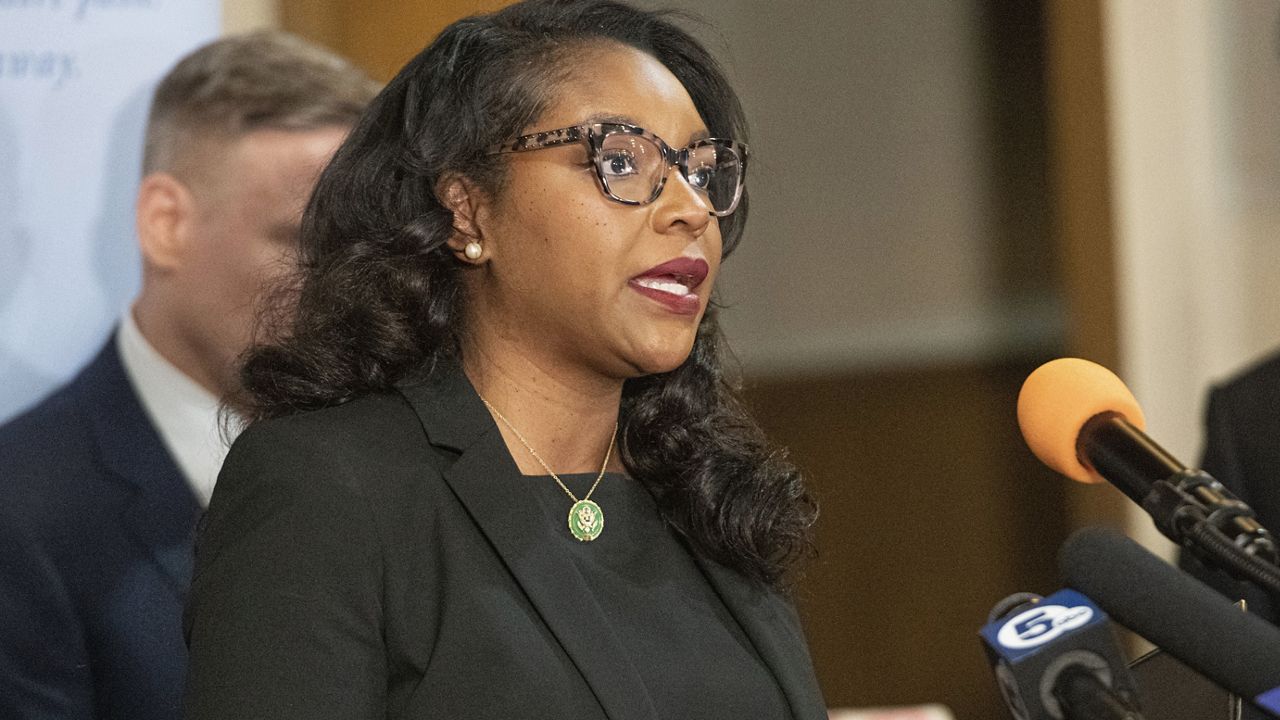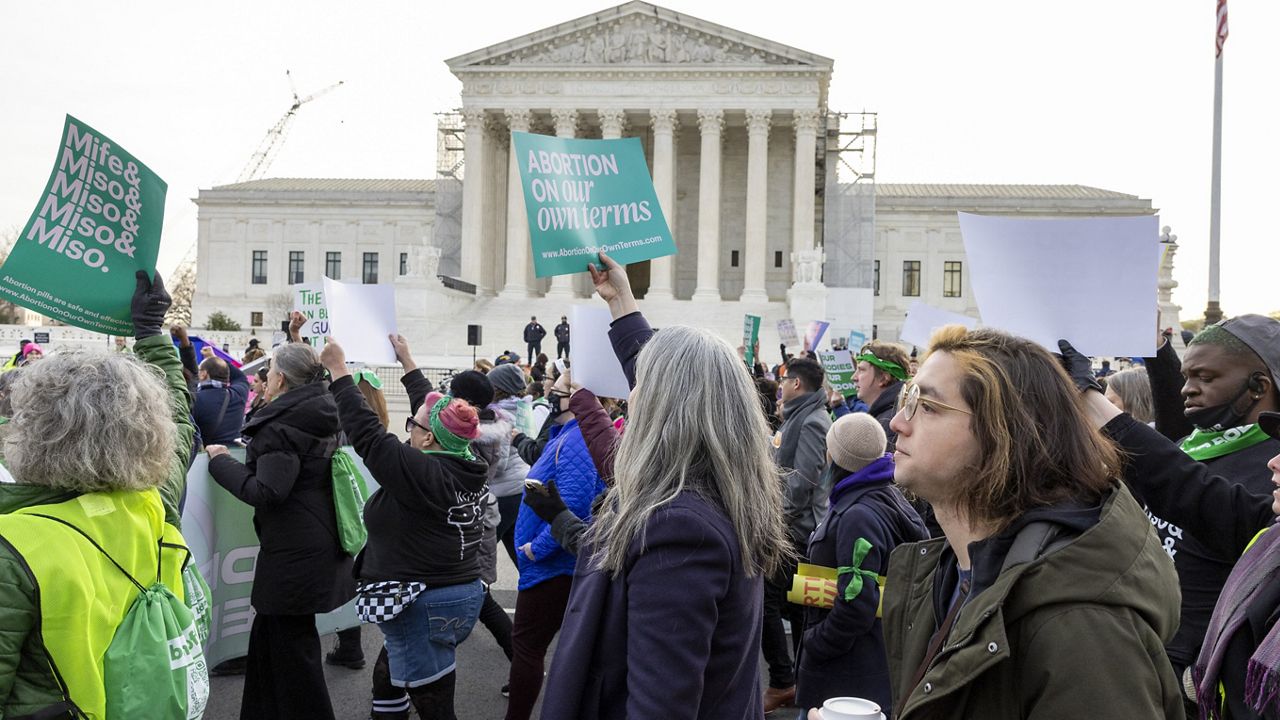House Democrats are introducing a resolution that would make clear the Emergency Medical Treatment and Labor Act, known as EMTALA, covers women in need of emergency abortions.
What You Need To Know
- House Democrats are introducing a resolution that would make clear the Emergency Medical Treatment and Labor Act, known as EMTALA, covers women in need of emergency abortions
- The proposal is in response to the Supreme Court’s decision in June to dismiss a pair of cases related to Idaho’s abortion ban without settling the question about when health care providers could legally provide emergency abortions
- The resolution is being sponsored by Democratic Reps. Emilia Sykes of Ohio and Mikie Sherrill of New Jersey
- In a news conference outside the U.S. Capitol on Thursday, Sherrill said EMTALA “clearly covers” emergency abortions that are not necessarily life saving
The proposal is in response to the Supreme Court’s decision in June to dismiss a pair of cases related to Idaho’s abortion ban without settling the question about when health care providers could legally provide emergency abortions. The justices left in place a lower-court ruling that temporarily blocked the state from enforcing its ban.
The Idaho law makes exceptions to save the life of the mother and in cases of rape or incest. The Biden administration sued, arguing the ban conflicted with federal law and that emergency abortions should also be provided to address health conditions short of death, including organ failure and loss of fertility.
The resolution is being sponsored by Democratic Reps. Emilia Sykes of Ohio and Mikie Sherrill of New Jersey.
In a news conference outside the U.S. Capitol on Thursday, Sherrill said EMTALA “clearly covers” emergency abortions that are not necessarily life saving.
“Women in America should not be on their deathbed to receive an abortion,” Sherrill said.
Lawmakers told stories about doctors, fearing prosecution or losing their medical licenses, reluctant to provide such care while some patients went on to have miscarriages in public restrooms, go into septic shock or need blood transfusions.
“Since the overturning of Roe v. Wade more than two years ago, we've heard horrifying stories of pregnant women being turned away from emergency rooms or unable to receive the life-saving care that they need due to cruel state abortion bans, even though the Federal Emergency Medical Treatment and Labor Act, also known as EMTALA, requires emergency rooms to treat and stabilize pregnant patients,” Sykes said.
Skykes said the Supreme Court had an opportunity to “right this wrong” but “they punted and left women in limbo.”
“The Supreme Court's ruling only increased chaos and uncertainty, leaving more women in danger and the door wide open for future attacks on reproductive health care,” she said.
Dr. Amy Burkett, an OB-GYN in Ohio, said the 2022 Dobbs v. Jackson Women’s Health Organization — in which the Supreme Court overturned the nationwide right to abortions — has affected doctors’ ability to treat their patients. She said in the weeks immediately following the ruling — when Ohio was under a six-week abortion ban — she carried around the business card of a defense attorney.
“I knew if it came down to it, I would choose to provide the evidence-based health care that my patients needed because I took an oath to care for the women in my community,” Burkett said. “Abortion is health care. Abortion is sometimes life-saving health care. Politics has no place in my exam rooms.”
The resolution faces long odds of passing in the Republican-led House. House resolutions are nonbinding and do not require the approval of the Senate or the signature of the president.










